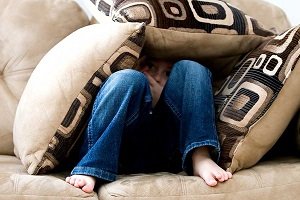Bipolar Depression and Treatment
TweetEffective treatment is available for bipolar disorder. Treatments include medication, supportive psychotherapy and occasionally ECT. The treatment of mania and hypomania has two phases: an acute phase, in which the acute syndrome is quelled and social and occupational impairment is improved; and a maintenance phase, in which medications are administered long term to prevent the recurrences of the condition.
Widely used to treat bipolar disorder, lithium (lithotabs, Eskalith) has proven highly effective in relieving and preventing manic episodes. It curbs accelerated thought processes and hyperactive behavior without producing the sedating effect of antipsychotic drugs or medications. In addition, it may prevent the recurrence of depressive episodes. Even so, it's ineffective in treating acute depression.
Because lithium has a narrow therapeutic range, treatment must be initiated cautiously and the dosage adjusted slowly. Therapeutic blood levels during the active manic period are 0.4 to 1.4 mEq/L. For safety, the level should never exceed 1.5 mEq/L. Therapeutic blood levels must be maintained for 7 to 10 days before the drug's beneficial effects appear; for this reason, antipsychotic drugs are commonly used in the interim to provide sedation and symptomatic relief. Because the kidneys excrete lithium, any renal impairment necessitates withdrawal of the drug.
Anticonvulsants, such as carbamazepine (Tegretol. Carbatrol), valproic acid (Depakene), and clonazepam (Klonopin), are used either alone or with lithium to treat mood disorders. Carbamazepine, a potent antimanic drug, is effective in many lithium-resistant patients.
Antidepressants are used to treat depressive symptoms, but they may trigger a manic episode.
Medication for Bipolar Disorder
Medications include lithium, anticonvulsant drugs (carbamazepine (Tegretol), valproate (Depakote), gabapentin (Neurontin) and lamotrigine Lamictal), antidepressants (such as bupropion (Wellbutrin)or sertraline (Zoloft)), neuroleptics (e.g. haloperidol) and benzodiazepines (e.g. lorazepam) Treatment choices depend on the type and phase of the illness. When a person is acutely manic, they may require hospitalization.
- One medication, lithium for bipolar disorder , is usually very effective in controlling mania and preventing the recurrence of both manic and depressive episodes.
- Most recently, the mood stabilizing anticonvulsants carbamazepine and valproate have also been found useful, especially in more refractory bipolar episodes. Often these medications are combined with lithium for maximum effect.
- Lamotrigine, an antiseizure agent, is proving to be an effective mood-stabilizer for bipolar disorder patients.
ECT helps severe depression or mania. It is most often used when medication doesn't work or is unsafe.
Full information on Bipolar disorder
Bipolar Disorder - Bipolar Disorder is the form of depressive illness in which the sufferer has periods of being on a high, as well as periods of depression.
The less severe form of high in bipolar disorder is hypomania.
What is the cause of Bipolar Disorder? Learn about various causes of bipolar disorder such as family tree, your genes, loss of job, etc.
Rapid Cycling Bipolar Disorder the essential feature of rapid cycling bipolar disorder is the occurrence of four or more mood episodes during the previous 12 months.
What are the symptoms of Bipolar Disorder? There are various symptoms of bipolar disorder.
Can Adolescent have bipolar disorder? Bipolar disorder can occur in adolescents and has been investigated by federally funded teams in children as young as age 6.
Can Children Have Bipolar Disorder? Children experience faster mood swings than adults, often cycling many times within a day.
Bipolar disorder - a case study Millions of Americans diagnosed with mental illness lead healthy lives because of information discovered through clinical studies.
History of bipolar disorder - Bipolar disorder has left its mark on history.
Importance of Bipolar disorder diagnosis Diagnosis is important, because it guides treatment decisions.
What is the need of diagnosis in childhood? The importance of proper diagnosis cannot be overstated.
What are the types of bipolar disorder? Learn about various types of bipolar disorder.
How can u help ur child and what is the role of parents? Your child can reduce the minor mood swings and stresses that sometimes lead to more severe episodes by adhering to the following tips.
It is very important that you are open and honest with your doctor about your medication and any concerns you have so that they can help you find the right one and the right dosage for you.


Sometimes crying or laughing
are the only options left,
and laughing feels better right now.

Current Issue
 Self Help Leaflets Take the help of our self help leaflets or booklets. |
 The DG Magazine All about living with depression |


















